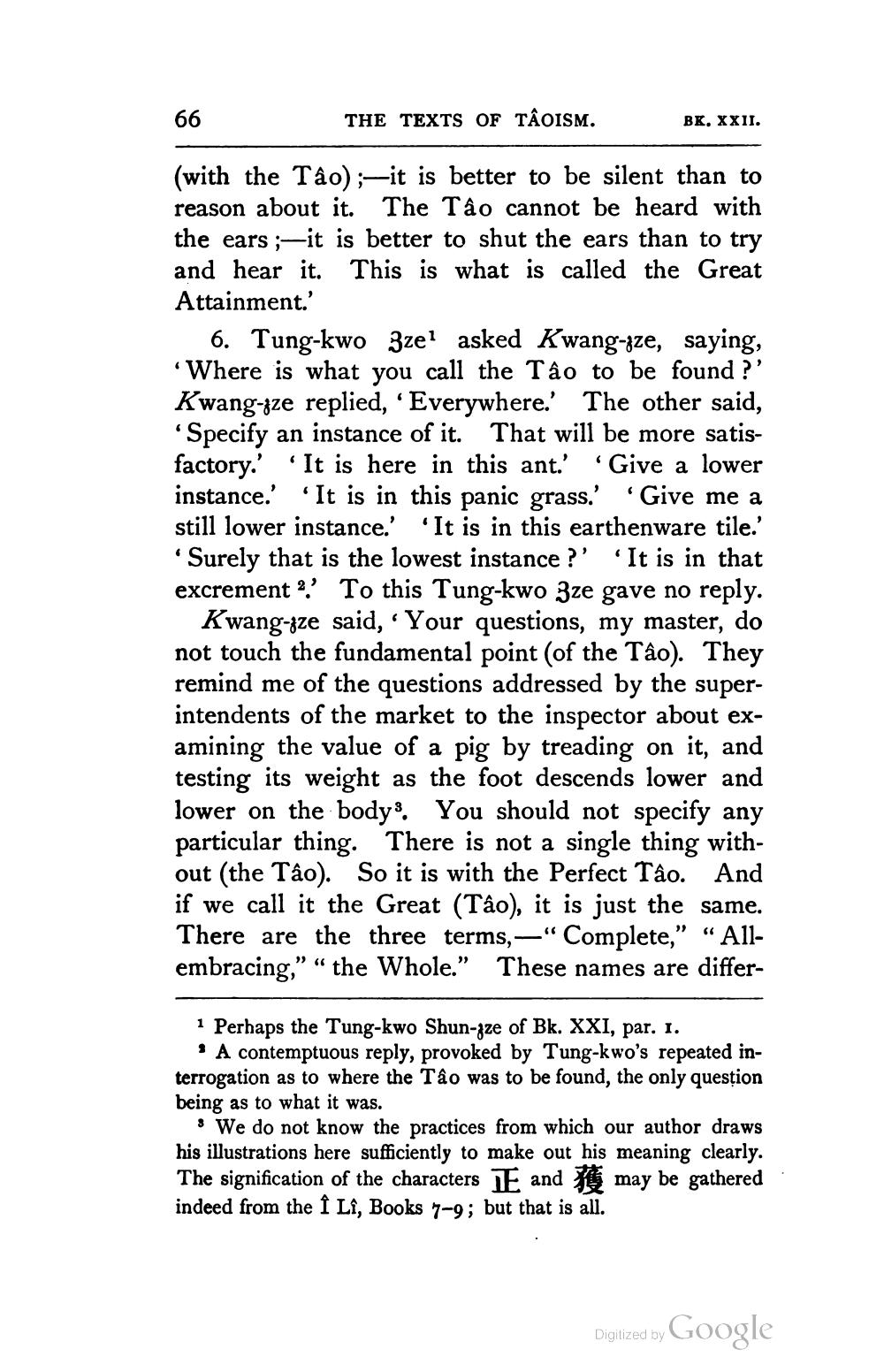________________
THE TEXTS OF TÂOISM.
BK. XXII.
(with the Tâo);-it is better to be silent than to reason about it. The Tão cannot be heard with the ears ;-it is better to shut the ears than to try and hear it. This is what is called the Great Attainment.
6. Tung-kwo 3zel asked Kwang-gze, saying, Where is what you call the Tâo to be found ?' Kwang-zze replied, 'Everywhere. The other said, 'Specify an instance of it. That will be more satisfactory.' 'It is here in this ant.' 'Give a lower instance.' 'It is in this panic grass.' 'Give me a still lower instance. It is in this earthenware tile.' 'Surely that is the lowest instance ?' 'It is in that excrement ?' To this Tung-kwo Zze gave no reply.
Kwang-gze said, 'Your questions, my master, do not touch the fundamental point (of the Tâo). They remind me of the questions addressed by the superintendents of the market to the inspector about examining the value of a pig by treading on it, and testing its weight as the foot descends lower and lower on the body. You should not specify any particular thing. There is not a single thing without (the Tão). So it is with the Perfect Tâo. And if we call it the Great (Tâo), it is just the same. There are the three terms,—"Complete," “Allembracing,” “the Whole." These names are differ
1 Perhaps the Tung-kwo Shun-sze of Bk. XXI, par. 1.
A contemptuous reply, provoked by Tung-kwo's repeated interrogation as to where the Tâo was to be found, the only question being as to what it was.
: We do not know the practices from which our author draws his illustrations here sufficiently to make out his meaning clearly. The signification of the characters T and may be gathered indeed from the I Li, Books 7-9; but that is all.
Digitized by Google




